The First World War was a global conflict that lasted from 1914 to 1918. It involved most of the world’s great powers, which assembled in two opposing alliances: the Allies and the Central Powers.
More than 70 million military personnel were mobilized in one of the world’s largest wars. Over nine million combatants and seven million civilians lost their lives due to the war, mostly from illnesses and injuries sustained during combat.
The causes of the war are still debated today, but what is not disputed is how influential WWI was in the 20th century. Here are ten books on WWI history that everyone should read.
A World Undone by G. J. Meyer
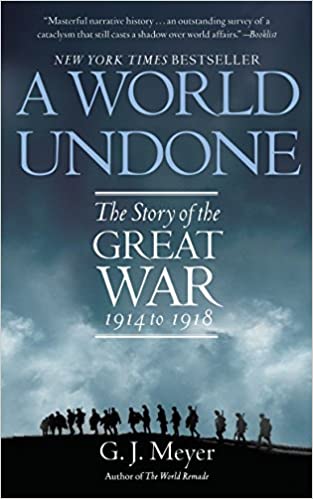
A World Undone is a comprehensive and engrossing account of the First World War. Drawing on a wealth of primary sources, G. J. Meyer provides readers with a detailed and nuanced history of the conflict.
He charts the course of the war from its outbreak in 1914 to its conclusion in 1918, and he offers insights into the key events and personalities that shaped its course.
In addition, Meyer brings the war to life through vivid descriptions of the fighting on the battlefields and the experience of ordinary soldiers and civilians caught up in the conflict. As a result, A World Undone is an essential book for anyone seeking to understand the First World War.
The First World War: A Complete History by Martin Gilbert
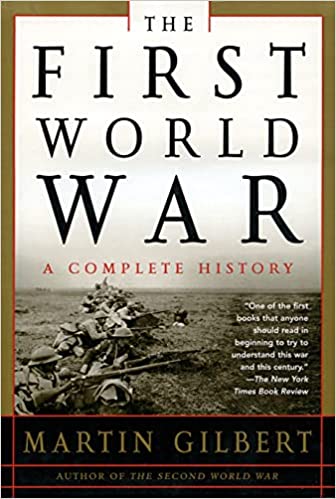
The First World War: A Complete History is a comprehensive and gripping account of the Great War. Gilbert masterfully weaves together an impressive range of primary sources to create a vivid and nuanced portrait of the conflict.
He brings to life the experiences of soldiers, politicians, diplomats, and ordinary citizens from all corners of the globe, providing readers with a deeply personal understanding of the war’s causes, course, and consequences.
The result is a seminal work that is essential reading for anyone seeking to understand this pivotal event in world history. We highly recommend it.
The First World War by John Keegan
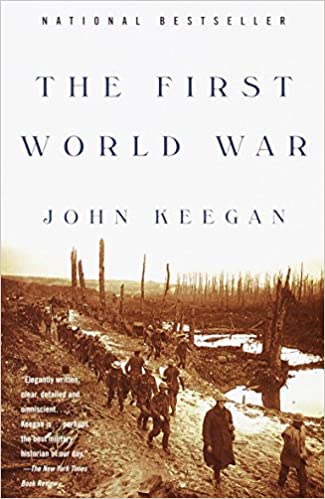
The First World War by John Keegan is a comprehensive and detailed account of the conflict that shaped the modern world.
Keegan offers readers a close look at the causes of the war, the major battles, and the personal stories of those who fought and died in it.
He also provides crucial context for understanding the legacy of the war, which still affects our world today. Through Keegan’s masterful storytelling, readers gain a deep understanding of this complex and devastating conflict.
The First World War is an essential work for anyone seeking to understand this pivotal moment in history.
The Western Front: A History of the Great War, 1914-1918 by Nick Lloyd
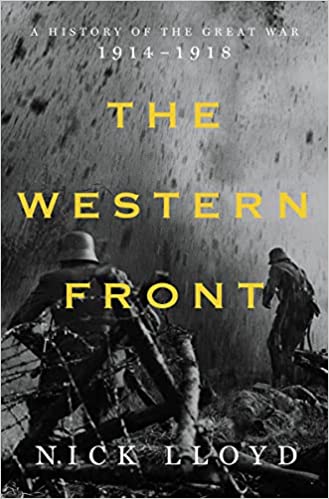
The Western Front: A History of the Great War, 1914-1918 by Nick Lloyd is a comprehensive and well-researched history of the First World War.
Lloyd does an excellent job of documenting the war’s major events, from Archduke Franz Ferdinand’s assassination to the Armistice’s signing. He also provides insights into the motivations of the various combatants and how those motivations changed over time.
In addition, Lloyd offers a detailed analysis of the military strategies employed by both sides during the conflict. This is an essential read for anyone interested in understanding one of the most important events of the twentieth century.
The Fall of the Ottomans: The Great War in the Middle East by Eugene Rogan
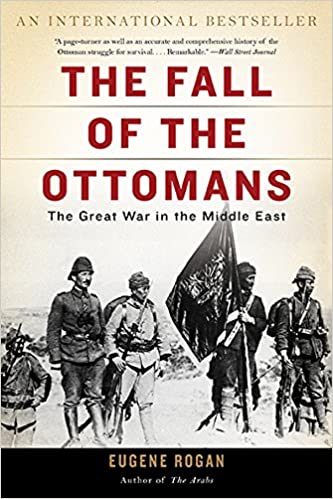
In The Fall of the Ottomans, historian Eugene Rogan tells the story of the Ottoman Empire’s collapse during the First World War.
Focusing on the experience of ordinary people in Egypt, Syria, and Palestine, Rogan offers a unique perspective on one of the most momentous events of the twentieth century.
He shows how the Ottoman Empire’s defeat transformed the Middle East and led to the rise of Arab nationalism. The Fall of the Ottomans is essential reading for anyone seeking to understand the history of the modern Middle East.
Rogan has written a masterful work of history that will be debated and discussed for years to come.
The Guns of August by Barbara W. Tuchman
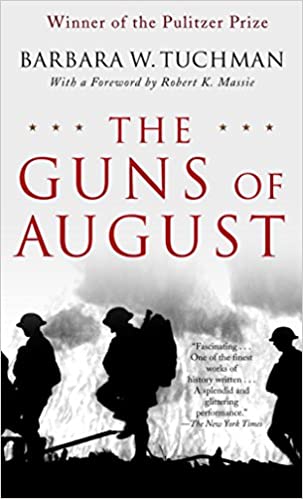
The Guns of August is a Pulitzer Prize-winning book by Barbara W. Tuchman that chronicles the events of World War I. The book was published in 1962, and it remains one of the most respected works of history ever written.
Tuchman carefully researched the events leading up to the war and weaves a compelling narrative that brings the reader into the heart of the conflict.
The book is also notable for its insights into the nature of war and how even the best-laid plans can quickly unravel in the face of violence and carnage. The Guns of August is essential reading for anyone interested in World War I.
A Storm in Flanders: The Ypres Salient, 1914-1918: Tragedy and Triumph on the Western Front by Winston Groom
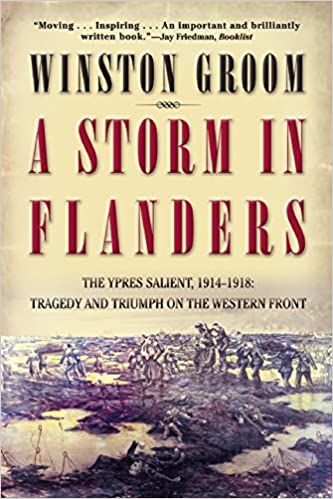
Winston Groom’s A Storm in Flanders is a masterful account of the First World War’s Western Front. Through archival sources and first-hand accounts, Groom brings to life the experience of the soldiers who fought in the Ypres salient.
He vividly describes the conditions in the trenches, the terror of gas attacks, and the desperate nature of hand-to-hand combat. In addition, Groom provides readers with an intimate look at the men who fought in this brutal conflict.
We see their courage in the face of adversity, camaraderie, and hope for a better future. A Storm in Flanders is a powerful and moving book that will give readers a greater understanding of the First World War.
The White War: Life and Death on the Italian Front 1915-1919 by Mark Thompson
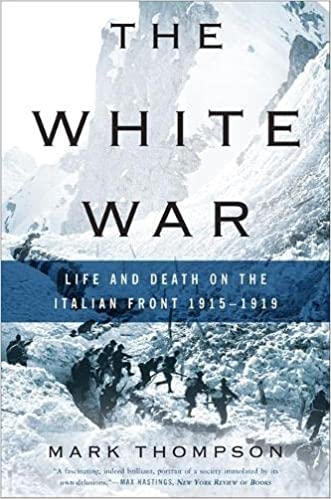
The White War is an intimate and harrowing account of World War I as experienced by the soldiers who fought in the alpine trenches of the Italian front.
Drawing on a wealth of previously untapped sources, Mark Thompson has brought to life the voices of the men who fought and died in this little-known theater of the war.
Through their letters, diaries, and memoirs, we understand the daily reality of life in the trenches: the numbing tedium, the fear, the camaraderie, and the moments of extraordinary heroism.
The Russian Army in the Great War: The Eastern Front, 1914-1917 by David R. Stone
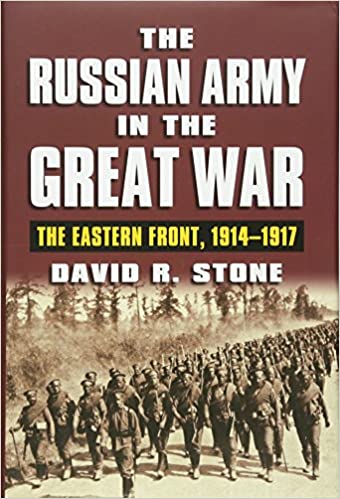
The Russian Army in the Great War: The Eastern Front, 1914-1917 by David R. Stone is a comprehensive and well-researched account of the Russian army’s experience during World War I.
The book provides a detailed overview of the army’s organization, training, equipment, and performance in battle. Stone also offers insights into the soldiers’ lives, both on and off the battlefield.
The result is a detailed and nuanced portrait of an often-overlooked fighting force. While the book is geared towards a general audience, it will be of particular interest to readers with a background in military history.
Specialist readers will find much to appreciate in Stone’s careful research and clear prose. Ultimately, The Russian Army in the Great War is a valuable addition to the literature on World War I.
Collision of Empires: The War on the Eastern Front in 1914 by Prit Buttar
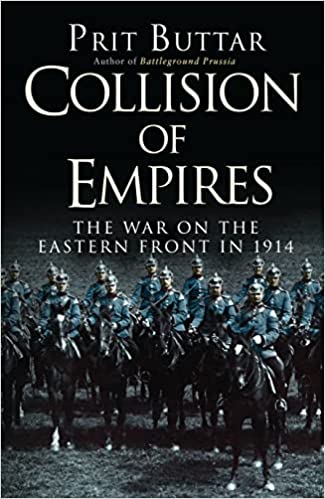
Prit Buttar’s Collision of Empires: The War on the Eastern Front in 1914 is a masterful account of one of the most consequential and bloody conflicts in world history.
Buttar has a gift for bringing the reader into the heart of the action, whether it’s the Battle of Tannenberg or the Siege of Przemysl.
He also does an excellent job of explaining the larger strategic picture, making it clear how the decisions made by German, Austrian, Russian, and other leaders led to disaster.
The First World War was a watershed moment in human history, and its effects are still being felt today. If you want to learn more about this important time period, these 10 books on WWI history are a great place to start.


“All Quiet On The Western Front”